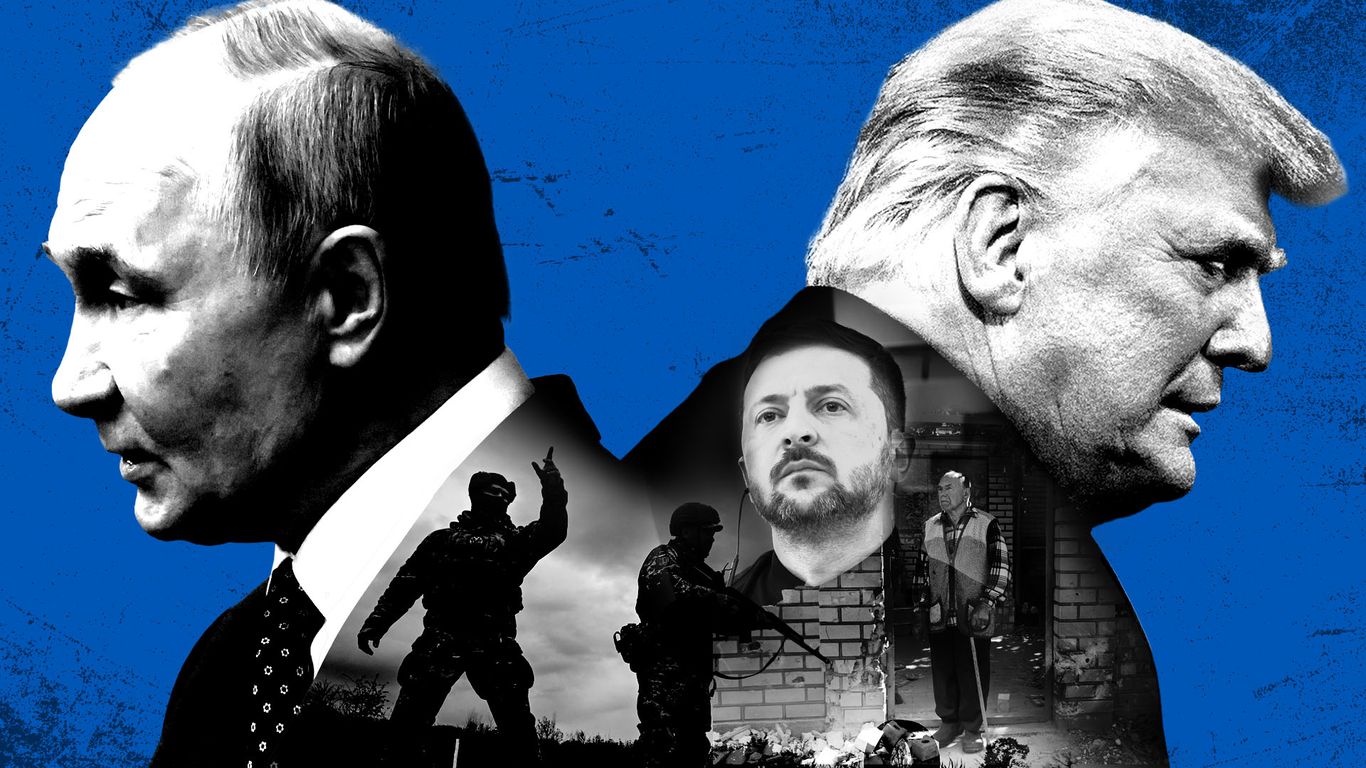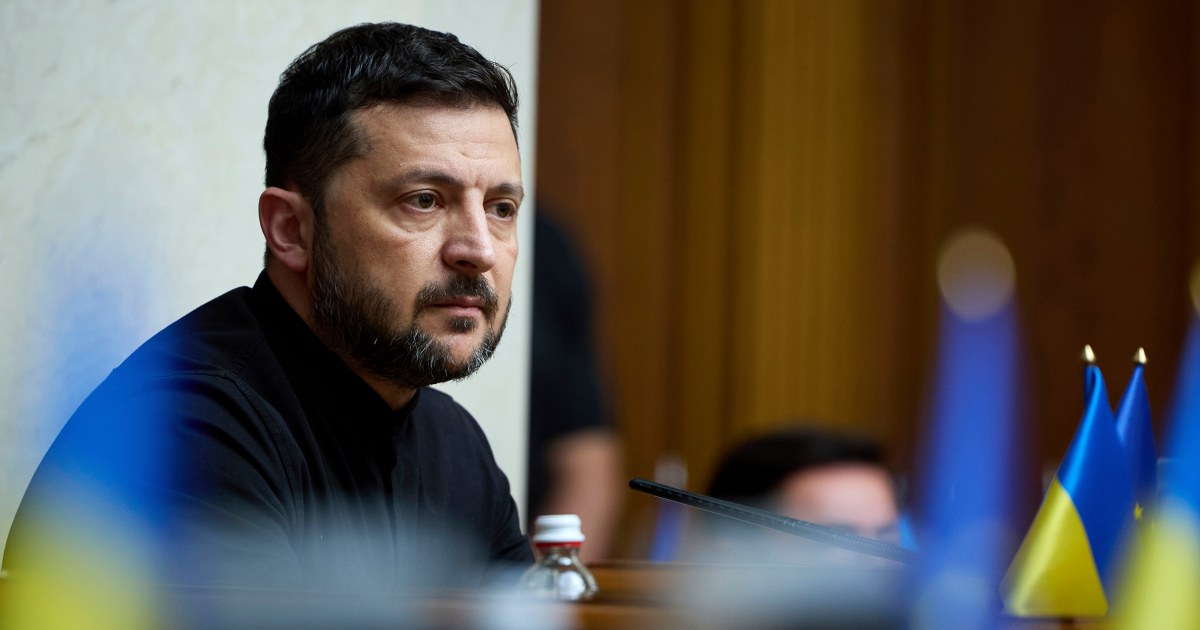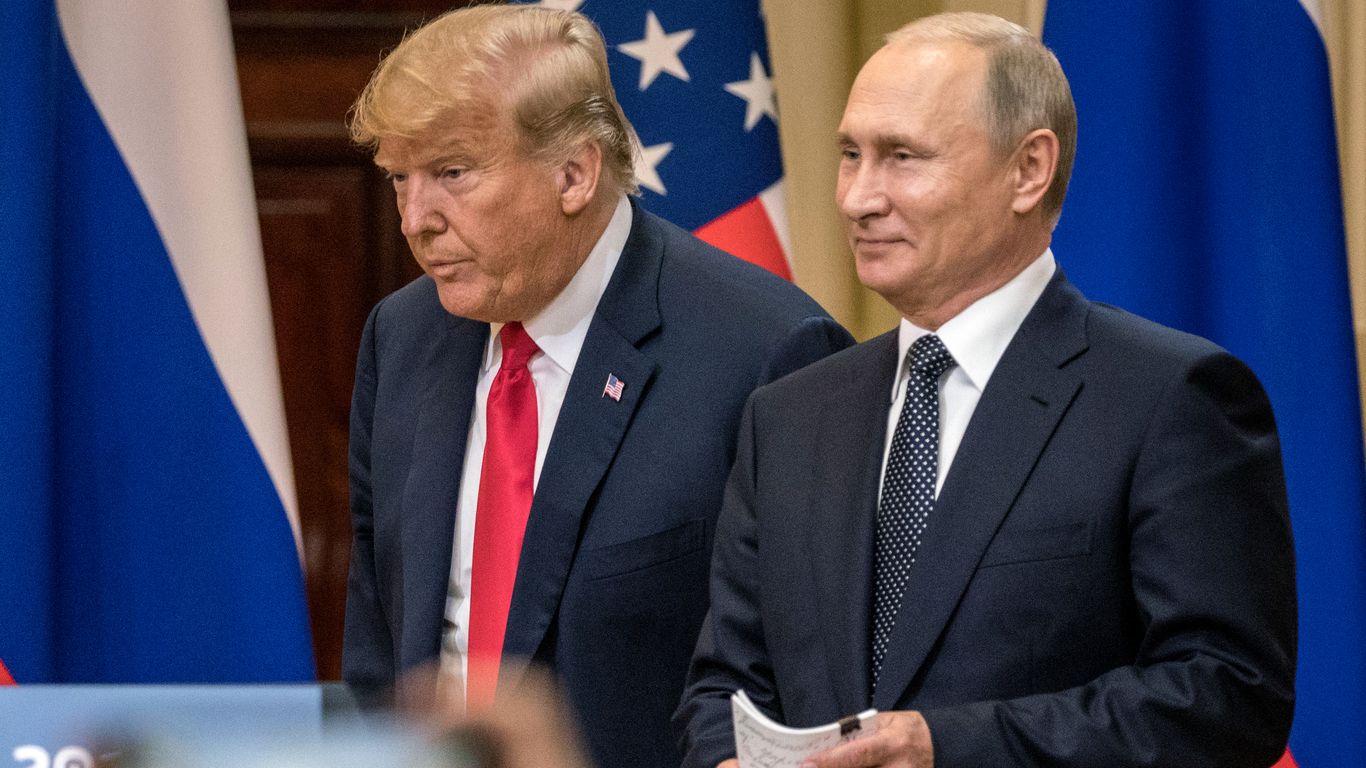Trump's Attitude Shift Towards Putin Raises Questions

Introduction
As President Donald Trump prepares for his highly anticipated summit with Russian leader Vladimir Putin, he has raised some questions about their relationship. Trump, who has previously boasted about his warm rapport with Putin, has recently been asking Europeans and White House aides what has changed about his counterpart. This shows a shift in Trump's attitude towards Putin and raises questions about the dynamics of their upcoming meeting.
Behind the Change
Trump's change in attitude towards Putin can be attributed to several factors. Firstly, the ongoing investigations into Russian interference in the 2016 US election have put a strain on their relationship. Additionally, Putin's recent actions, such as the annexation of Crimea and involvement in the Syrian conflict, have caused concern among US officials. Trump's advisors have also been pushing for a tougher stance on Russia, which may have influenced his questioning.
The Importance of the Summit
The upcoming summit between Trump and Putin will be their first one-on-one meeting in six years. It is a crucial opportunity for the two leaders to discuss pressing issues and potentially improve their strained relationship. The summit will also be a test of Trump's negotiation skills and could have significant implications for US-Russia relations. As the world watches, it remains to be seen how their meeting will unfold and what changes, if any, will occur in their dynamic.
About the People Mentioned
Donald Trump
Donald John Trump, born June 14, 1946, in Queens, New York, is an American businessman, media personality, and politician. He graduated from the University of Pennsylvania’s Wharton School in 1968 with a degree in economics. In 1971, he took over his family’s real estate business, renaming it the Trump Organization, through which he expanded into building and managing skyscrapers, hotels, casinos, and golf courses. Trump gained widespread fame as the host of the reality TV show *The Apprentice* from 2004 to 2015, which helped establish his public persona as a successful entrepreneur. Trump entered politics as a Republican and was elected the 45th president of the United States, serving from 2017 to 2021. His presidency was marked by significant policy actions including tax cuts, deregulation, the appointment of three Supreme Court justices, renegotiation of trade agreements (notably replacing NAFTA with the USMCA), and a focus on immigration control including border wall expansion. He withdrew the U.S. from international agreements such as the Paris Climate Accord and the Iran nuclear deal, and engaged in a trade war with China. His administration’s response to the COVID-19 pandemic was criticized for downplaying the virus’s severity. Trump was impeached twice by the House of Representatives—first in 2019 for abuse of power and obstruction, and again in 2021 for incitement of insurrection—but was acquitted by the Senate both times. After losing the 2020 election to Joe Biden, Trump challenged the results, culminating in the January 6, 2021, Capitol riot. He remains a central figure in American politics, having won the 2024 presidential election and returned as the 47th president in 2025, continuing to promote policies aimed at economic growth, border security, and military strength[1][2][3][4].
Vladimir Putin
Vladimir Putin is the current President of Russia, a position he has held for multiple terms since 2000, with a brief interlude as Prime Minister from 2008 to 2012[1][3]. Born in Leningrad (now Saint Petersburg) in 1952, Putin began his career in the Soviet Union’s security services, joining the KGB in 1975 and rising to the rank of Lieutenant Colonel by the time he left in 1991, following postings in East Germany and Leningrad[4]. After the Soviet Union’s collapse, he transitioned into politics, serving as an adviser to Saint Petersburg Mayor Anatoly Sobchak and later moving to Moscow, where he held various administrative roles under President Boris Yeltsin[6]. Putin was appointed Prime Minister in August 1999 and became acting President when Yeltsin unexpectedly resigned that December[3][6]. He won his first presidential election in March 2000, promising to stabilize Russia’s economy and political system after the tumultuous 1990s[3][7]. During his initial terms, he centralized power, reasserted federal control over Russia’s regions, and curtailed the influence of the country’s oligarchs through legal and economic measures[7]. Putin was re-elected in 2004 but, due to constitutional term limits, stepped aside in 2008, becoming Prime Minister under his successor Dmitry Medvedev, while retaining significant influence[3]. Constitutional amendments later extended presidential terms, and Putin returned to the presidency in 2012[1]. Putin’s time in office has been marked by assertive foreign policy, including military interventions in Syria in support of President Bashar al-Assad and the 2014 annexation of Crimea, which led to international sanctions[1]. Domestically, his tenure has seen increased state control over media, the suppression of political opposition, and constitutional changes consolidating executive authority[1]. In 2022, Russia’s full-scale invasion of Ukraine triggered a major international crisis, further isolating Russia from the West and prompting widespread condemnation[1]. As of 2025, Putin remains a dominant figure in Russian politics, having secured another term in office through constitutional changes that allow him to potentially remain president until 2036[1]. His leadership continues to shape Russia’s domestic trajectory and its role in global affairs, amid ongoing conflict in Ukraine and strained relations with NATO and Western countries[1].
About the Organizations Mentioned
White House
The **White House Office** is a central organizational component within the Executive Office of the President of the United States (EOP), tasked with supporting the President in managing day-to-day operations, policy formulation, and political affairs. It is headed by the White House Chief of Staff and staffed by senior aides who report directly to the President, including those with titles such as Assistant to the President and Deputy Assistant to the President. These staff members are mostly political appointees without the need for Senate confirmation, allowing the President considerable discretion in shaping the office to suit each administration's priorities[1]. Historically, the White House Office was established in 1939 through Reorganization Plan 1 and Executive Order 8248 to provide immediate assistance to the President. It functions as the nerve center for presidential staff, physically located primarily in the West Wing, and plays a pivotal role in managing the President’s policy agenda, communications, and political strategy. Its flexible organization allows each President to tailor the staff composition and roles according to their governance style and objectives[1]. In the current context of 2025, the White House Office operates under the administration of President Donald J. Trump, who returned to office after the 2024 election. His administration emphasizes rejecting prior policies deemed extremist and focuses on enhancing quality of life, economic growth, and American energy dominance. The administration includes Vice President JD Vance and First Lady Melania Trump, among others, with a Cabinet advising on various governmental functions[4][6]. Recent initiatives linked to the White House’s operational sphere include the establishment of a new **Department of Government Efficiency (DOGE)** aimed at modernizing federal technology and software to boost government productivity. The DOGE agenda is implemented through the renamed United States DOGE Service within the Executive Office, reflecting a concerted push to leverage technology for administrative modernization[5]. Notably, the White House Office also coordinates national security and homeland security functions through the National Security Council staff, underscoring its central role
EU
## Overview The **European Union (EU)** is a unique political and economic partnership of 27 European countries that have chosen to work together to promote peace, stability, and prosperity across the continent[4]. Founded in the aftermath of World War II, the EU’s original goal was to foster cooperation among nations to prevent further conflict. Today, it is a major global actor in business, technology, regulation, and international affairs[6]. ## What the EU Does The EU operates as a **supranational union**, meaning it has authority over certain policy areas that transcend national borders, such as trade, competition, environmental standards, and digital regulation[1]. Its institutions—including the European Commission, Parliament, and Council—create laws and policies that member states must adopt, ensuring a level playing field for businesses and citizens across the bloc[6]. The EU’s **Single Market** allows goods, services, capital, and people to move freely, though persistent regulatory barriers still hinder full integration, particularly in services[5][7]. The euro, used by 20 member states, is one of the world’s leading currencies. ## History The EU traces its roots to the 1951 European Coal and Steel Community, founded by six countries: Belgium, France, Germany, Italy, Luxembourg, and the Netherlands[4]. Over decades, successive treaties expanded its scope and membership. The **Maastricht Treaty** (1993) formally established the EU, and subsequent enlargements brought in countries from Central and Eastern Europe after the Cold War[1]. The **United Kingdom’s exit** in 2020 (Brexit) reduced membership from 28 to 27[4]. ## Key Achievements - **Peace and Stability**: The EU is widely credited with helping maintain peace in Europe for over 70 years. - **Economic Integration**: The Single Market and euro have boosted trade, investment, and economic resilience. - **Regulatory Leadership**: The EU
US Officials
The organization "US Officials" is a web-based platform established in 2008 that provides a specialized, low-cost internet service for sports referees to assign games efficiently. It functions as a digital tool designed to streamline the scheduling and management of sports officiating assignments, catering primarily to the needs of referees and sports organizations[8]. Unlike government entities, US Officials is a private service platform focused on the sports industry, aiming to facilitate communication and coordination among officials, leagues, and teams. Over the years, it has experienced steady growth by expanding its reach and user base, enhancing its technology and platform capabilities to support various sports and levels of competition. Key achievements include its sustained annual growth since inception and the establishment of a trusted, cost-effective system that addresses the logistical challenges faced by sports officials and administrators[8]. US Officials operates in the intersection of sports and technology, leveraging internet-based solutions to improve traditional manual processes. This makes it particularly relevant for readers interested in business and technology news as an example of digital transformation in niche service markets. The platform's notable aspects include its focus on affordability, user-friendly interface, and dedicated service to the sports officiating community, which differentiates it from broader sports management or governmental organizations. In contrast, “US Officials” should not be confused with official U.S. government agencies or federal officials, which encompass departments like the Department of Justice or the Executive Branch, responsible for law enforcement, governance, and national security, as described in government sources[1][2][3]. US Officials, by comparison, is a private enterprise with a specialized function unrelated to government administration. Overall, US Officials represents a successful example of technology applied to improve operational efficiency in sports officiating, highlighting the impact of digital platforms on traditional, labor-intensive industries.

















